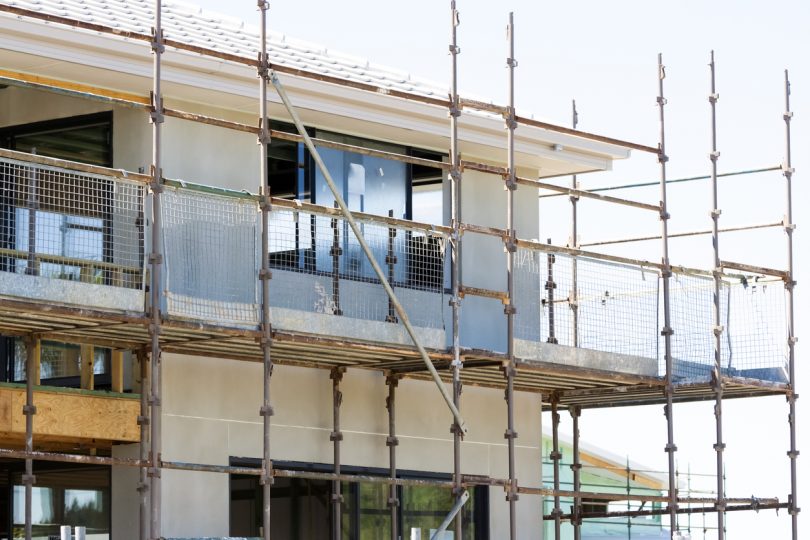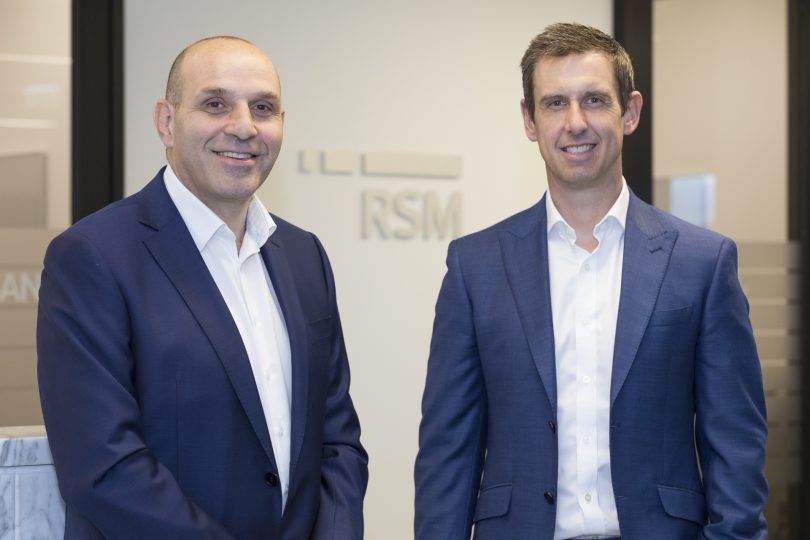
The risks associated with zombie companies extend into the economy in general with the construction industry particularly vulnerable. Photo: File.
There is no doubt that good businesses have been hit hard in 2020 but once this recession is behind them they will likely emerge leaner and ready for a new business cycle. But what about the businesses that were battling before COVID-19?
RSM Canberra Partner Jonathon Colbran says there are many companies operating today that were sick before COVID-19 and are now surviving only though the cash flow benefits of JobKeeper, a moratorium on insolvent trading being extended, ATO leniency and loan holidays offered by the banks.
Often called ‘zombie companies’, Mr Colbran says “there are businesses that are technically trading while insolvent but due to the moratorium of director liability for insolvent trading being extended, they are almost encouraged to keep operating. These businesses are now on life support”.
“Being realistic, some businesses are simply not going to survive post-pandemic. However, if your business model is fundamentally strong and likely to be viable longer term, you should be looking at strategies to position and improve your business for when normal returns. However, if you do have concerns then acting early is critical.”
Mr Colbran says he expects trading conditions to get worse post-dial back before they get better.
“The phone may not start ringing once restrictions are behind us,” he warned. “Many business owners should be reviewing their position and stress testing their strategies to determine whether they should continue to trade.”
Mr Colbran says zombie companies may still be generating cashflow but they will typically owe large sums of money to suppliers and contractors.
“A company in trouble will be accruing tax debt, their creditors will be calling and usually their books and records are not up to date.
“Good record keeping is important, if you don’t have a picture of what your business looks like, it makes it hard to make realistic decisions. Some companies may not need to close altogether so exploring options and restructuring which may involve pivoting, will make sense.”
Mr Colbran says the risks associated with zombie companies extends into the economy in general with the construction industry particularly vulnerable.
“You often find sub-contractors doing work for builders who they have been dealing with for years and they may be aware that they are struggling but don’t want to let them down, or risk losing future work. But it is more important than ever to ensure you get paid for the work you have done before you start any more,” Mr Colbran said.
He warns that it is not going to be good for either party if a company has to wind up.
“Don’t let debts build up. Keep your ear to the ground, make sure you know what the situation is and push hard to get paid. It’s hard but I regularly advise clients to set a stop-loss position for how much credit they are prepared to provide to clients and stick to it.”
But it is not all bad news. If you’re a business owner and your business is in trouble, now’s the time to take charge and get onto your accountant or business advisor.
“Developing a business recovery plan may be the most important thing you do for your business in 2020. Knowing that you have a plan B can make life easier. The plan can involve pivoting towards new markets or opportunities, scaling down or restructuring,” Mr Colbran advised.
“Just don’t ignore the warning signs and hope for the best. Start with a visit to your accountant. Too many people slog away at a business trying to work faster and harder just because that is all they know. Rationalising may save a lot of pain, give you perspective and provide you with better options.”
For more information on financial services visit RSM.

RSM Managing Partner Frank Lo Pilato with RSM Canberra Partner Restructuring and Recovery Jonathon Colbran. Photo: Michelle Kroll.
Original Article published by Karyn Starmer on The RiotACT.
This is a sponsored article, though all opinions are the author’s own. For more information on paid content, see our sponsored content policy.


What's Your Opinion?